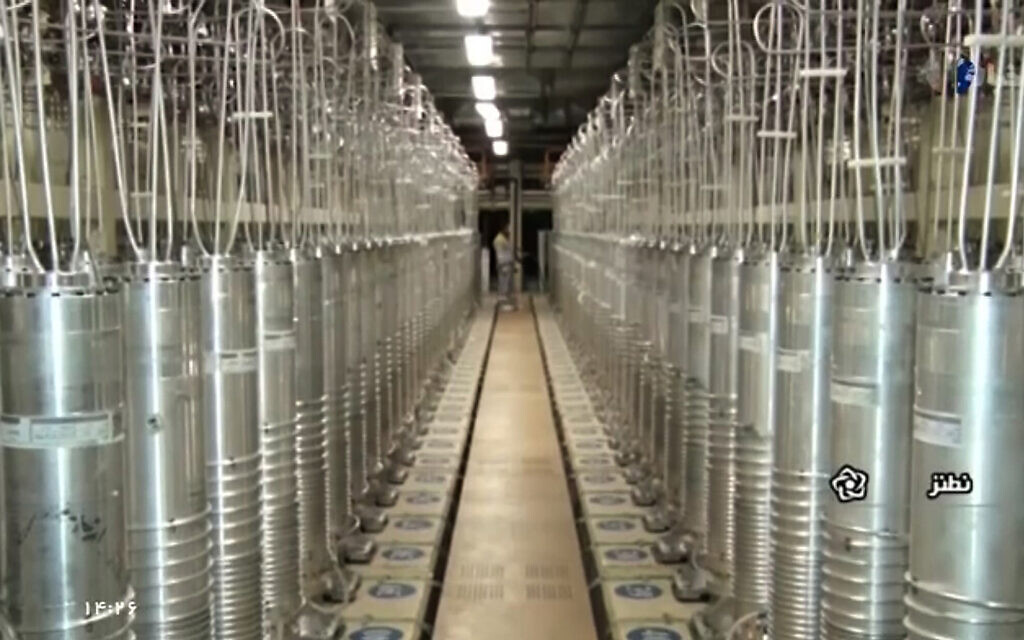
Iran has taken another step to increase its enrichment activities in refining uranium by more than 20 percent, Reuters reported on Monday, citing a report by the International Atomic Agency.
The move is aimed at building knowledge of the refining process at Iran’s Natanz plant, the report said, because the product is not being kept in the centrifuge by the change.
Although Iran already enriches uranium in Natanz by 60%, research to improve enrichment methods is opposed by Western powers, as it is irreversible and builds up Iran’s ability to produce weapons-grade uranium. Is.
The IAEA said in its report, “On 25 October 2021, the agency verified that Iran began feeding enriched (uranium hexafluoride gas) up to 20% U-235 in a single IR-6 centrifuge in R&D Line 2 at PFEP.” “
The IAEA report states, “As a result the product and tail streams were being reconnected, meaning that enriched uranium was not being stored.
In response to the developments, the IAEA report stated that it would “increase the frequency and intensity of its safety measures activities” at the pilot fuel enrichment plant, an upstream facility located at the Natanz site.
An IAEA statement outlining the report said that, last week, Iran informed that it planned to change the setup of clusters of small to medium-sized enrichment centrifuges in Natanz enriched with up to 20% uranium Is. However, as per the IAEA report, those additional machines have not been fed so far.
Earlier this month, the head of Iran’s Atomic Energy Agency said the country had Enriched over 120 kgs 20% enriched uranium.
In September, the IAEA reported that Iran had increased its stock of enrichment by more than a percentage allowed in a deal with world powers known as the Joint Comprehensive Plan of Action.
The IAEA estimated that Iran has 84.3 kg of uranium enriched to 20% (up from 62.8 kg when the IAEA last reported it in May).
Under the JCPOA, Iran was not to enrich uranium above 3.67%, well below the 90% threshold required for use in nuclear weapons.
The US, China, Russia, Germany, France and Britain hit out at the JCPOA agreement in Vienna in 2015 with Iran over its nuclear program. It offered to lift some sanctions against Iran if Tehran withdrew its nuclear program.
The nuclear deal began to fall apart in 2018 when the administration of former US President Donald Trump withdrew and reinstated sanctions. In return, Iran again began to intensify its nuclear activities.
Negotiations for the JCPOA deal began in Vienna in April between Tehran and the remaining five parties, aimed at bringing Washington back into the agreement. But the talks have been stalled since the sixth round of talks in June, when the ultra-conservative Ibrahim Raisi won Iran’s presidential election.
on Monday US Special Envoy for Iran Robert Mali said: Iran’s explanations for staying away from nuclear talks in Vienna are “thin.”
Malee said Washington is concerned about whether Iran will continue to delay the resumption of nuclear talks or return to talks with unrealistic demands. According to Male, the US is intensifying its diplomacy “in the coming days and weeks” and Iran should consult with allies to choose that path.
Although the priority is to find a diplomatic solution, Malee reiterated that the US would use “other tools” to prevent Iran from acquiring nuclear weapons if the Vienna talks fail.
Agencies contributed to this report.